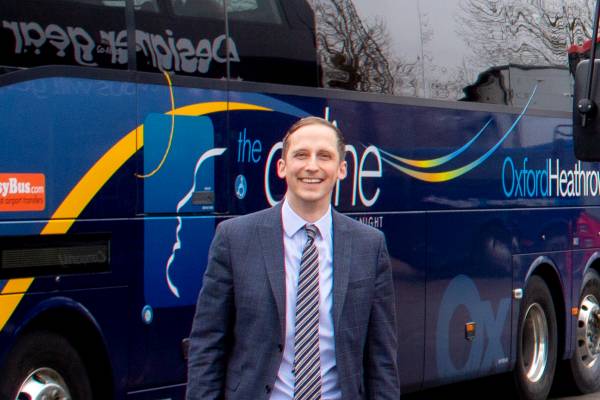Building on the success of their existing electric-hybrid buses, Omnibus were chosen to work in partnership with Oxford Bus Company on their decarbonisation strategy.
Part of the Go-Ahead Group, the operator sought to gain a competitive advantage by creating schedules that supported their bid for the Government’s ZEBRA funding to purchase a fully electric fleet.

Their goal was to keep costs to a minimum by improving vehicle and driver management. In addition, Omnibus advised on the inter-urban services operated by sister company Thames Travel.
Challenge
Oxford Bus Company required scheduling scenarios to support a wide variety of work to analyse the impact of electric vehicles on operations as well as costs. Requirements included creating:
- Multiple scheduling scenarios created and compared, to maximise the total number of miles operated per vehicle per day due to the limited range of the electric vehicles (EVs) specified, and to ensure that expensive new EV buses purchased would be effectively utilised. These are across numerous rosters at both Oxford Bus Company and Thames Travel.
- Scheduling scenarios produced to inform on the effect that an EV operation may have on driver duty costs and content.
- Scheduling scenarios produced to inform on the effect that a 100% EV operation may have on overall costs.
The company operates a comprehensive network of services in the city, as well as express coach services to the airports. It also operates the BROOKESbus service in partnership with Oxford Brookes University and park & ride which connects five car parks to the city centre.
Solution
Omnibus’ consultancy team proposed custom performance scenarios agreed with the operator’s vision to operate 100% zero emission vehicles on city routes by 2024. Omnibus also advised on the most cost-effective solution to roll out a fully electric bus fleet. The solution included:
- Producing scenarios on agreed route groupings to determine:
- Additional vehicle requirements
- Changes to duty costs and content
- Route branding issues
- Highlighting the minimum cost solutions and advising on the most efficient solutions based on maintaining route groupings.
- Highlighting requirements for opportunity charging during the day and for overnight charging.
- Running further scenario testing for long distance inter-urban routes that were expected to be less well-suited than city services to move to an EV operation.
Luke Marion, Finance & Commercial Director of Oxford Bus Company, said: “We’ve had a long-standing partnership with Omnibus and have always highly valued their proactive and positive approach to helping us solve our scheduling challenges.
“The work they’ve done to support us on the electrification project has been invaluable in helping us understand how we will need to adapt our scheduling practices to deal with new vehicle technologies.”
Results
By using Omnibus’ consultancy services, Oxford Bus Company was able to use optimal and robust scheduling models to meet its environmental objectives. The operator succeeded in:
- Maintaining scheduled service times
- Smoothing the EV charging operation throughout
- Maximising driver efficiency by re-allocating duties
- Reducing costs by mixing vehicle workings
- Maintaining brand identity on established routes
Key features and figures found in these results are to be used to inform and appraise future decarbonisation projects across the Go-Ahead group.
Powering the future of your bus operations
Grow patronage, boost revenue and drive operational efficiency.
